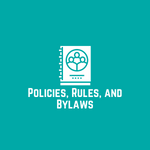This page contains the information and resources you'll need to be successful from your first week to your first year of practice. This information is intended to provide some context and guidance. If you're not sure if this information applies to you, or you have additional questions, check in with your local physician leader and they can provide advice and guidance about your specific situation.
In your first week of practice, you might need:
|
Image

|
Image

|
Image

|
|
Image

|
Image

|
Image

|
In your first year of practice, you might need:
|
Image

|
Image

|
Image

|
First Week of Practice
IT Support and Access
You will require access to a variety of IT systems and applications depending on your specialty and site. Learn more about gaining access to applications including electronic medical records, medical imaging, client & provider registries, drug information systems, food and nutrition systems, the SHARE Clinical Portal for electronic health records, telehealth, and eScription:
Please contact your leader to learn more about the specific IT requirements of your role.
Policies, Rules and Bylaws
You should review and be aware of the some general Nova Scotia Health policies, bylaws, rules, and regulations:
- Medical Staff Rules and Regulations
- Medical Staff Bylaws
- Hand Hygiene Policy
- Respectful Workplace Policy
- Scent Awareness Policy
- Smoke and Tobacco Reduction Policy
- Travel Policy
Visit the Nova Scotia Health policy site to browse or search for specific policies. This site contains both clinical and administrative policies for the organization:
Site-Specific Information
Nova Scotia Health is comprised of a wide variety of facilities, and some of the local things you'll need to set up vary across sites. Key things to ask your leader or site/department administrative assistant on or before your first day on the job are:
- Parking: Is parking available on site? What does parking cost? Where do I get a parking pass?
- ID Badge: Do I require an ID badge for this site? Where do I get one? What level of access will I require to certain rooms or buildings?
- Mailbox: Has a mailbox been set up for me on site? How do I access it?
- IT Access: Are there local or clinic-specific applications I need to access? How do I set up access / receive training on these?
- Local Contacts: Is there a list of key specialists to contact? Are there site, department, administrative contacts I should be aware of?
Some site specific information can be found on Nova Scotia Health's public website:
Emergency Colour Codes
Download the emergency colour codes poster to learn what each code means and what actions you should take when a code is called in your work area:
Find more information about emergency preparedness on Nova Scotia Health's intranet site:
Note: You will need to log in with your network ID and password to access the intranet (this is the same one you use to access your @nshealth.ca email).
Translation & Language Services
Patients and clients who do not speak English fluently or understand it can access a trained interpreter. They should also be provided with translated print material, where applicable. Language Services are available across Nova Scotia Health.
Note: You will need to log in with your network ID and password to access the intranet (this is the same one you use to access your @nshealth.ca email).
Specialists and Services
Depending on your specialty and practice, you may need to refer to specialists or access a range of services within your zone and throughout the province. While we do not currently have a master list of all services and specialists province-wide, many clinics and departments/divisions keep local lists, which you can request from your physician leader or department, division, site, or clinic administrative staff.
Find general information about the province's services, surgeons, and wait times:
Note: You will need to log in with your network ID and password to access the intranet (this is the same one you use to access your @nshealth.ca email).
First Year of Practice
Organizational Information
About Nova Scotia Health
Nova Scotia Health provides health services to Nova Scotians and some specialized services to Atlantic Canadians. We operate hospitals, health centres and community-based programs across the province.
- Nova Scotia Health Strategic Plan and FAQs
- Our Values - Respect, Integrity, Innovation, Courage, Accountability - Watch Videos
- Nova Scotia Health Physician Leadership Directory
-
Document
Medical Affairs
Medical Affairs, a department within Nova Scotia Health, works as a liaison between physicians, the Nova Scotia Health, and the Nova Scotia provincial government's Department of Health and Wellness. Medical Affairs roles include:
- Contract Management and Budget Support
- Physician Recruitment and Retention
- Physician Resources
- Physician Leadership Development
- Medical Education
- Privileging and Credentialing
- Physician Communications and Engagement
Nova Scotia Health Medical Affairs News and Information
Department of Family Practice
The Department of Family Practice and Primary Health Care work together to strengthen and support the primary health care system in Nova Scotia. They coordinate the provincial collaborative care model and manage the Find a Family Practice registration list.
The department:
- Represents more than 1,000 family physicians in Nova Scotia
- Focuses on topics that are relevant to family physicians and family practice
- Supports a collaborative approach to primary health care
- Strengthens communication and relationships between family physicians and specialist colleagues at Nova Scotia Health to improve patient care and access
- Provides a learning and social network for the family practice community
Contact the Department of Family Practice at familypractice@nshealth.ca or visit their website here
Specialty Departments and Divisions
Many of the specialty departments and divisions within Nova Scotia Health have their own websites with information for clinicians.
Nova Scotia Health Departments A–Z
Dalhousie Faculty of Medicine
Dalhousie University has an affiliation agreement with Nova Scotia Health, which allows both organizations to cooperate and collaborate in their mutual quest to provide excellence in clinical care, train the next generation of health care providers, and conduct research. Some physicians have roles that are jointly appointed to Nova Scotia Health and Dalhousie Faculty of Medicine, with accountabilities to both organizations. Learn more about Dalhousie Faculty of Medicine:
Department of Health and Wellness
Nova Scotia's Department of Health and Wellness (DHW) is the provincial government department responsible for health care. DHW supports a variety of programs and services that protect and promote health, and treat illness for Nova Scotians and their families.
Department of Health and Wellness
Organizational Resources
The Medical Affairs Department has an email for physicians to write with questions or to find solutions to challenges they experience.
Contact us by clicking here.
Nova Scotia Health Library Services
Library Services support patient care, staff development and serve as research hubs throughout Nova Scotia. You can access evidence-based content in digital and print formats, literature searching services, borrowing from other libraries and more.
Nova Scotia Health Library Services
Drug Information Portal
Common names for drugs can vary widely across languages and cultures. This resource, created by the US National Library of Medicine, helps by providing a list of synonyms for many drugs.
Nova Scotia Health Physician Leadership Development
Nova Scotia Health supports aspiring, new, and experienced physician leaders with individual and team assessments, targeted education, online learning, one-to-one coaching, and other supports as needed.
Nova Scotia Health Physician Leadership Development
Continuing Professional Development
College of Family Physicians of Canada Continuing Professional Development
The College of Family Physicians of Canada (CFPC) is the professional organization responsible for establishing standards for the training, certification and lifelong education of family physicians. he CFPC encourages and supports family physicians in meeting their CPD goals through a variety of programs and services.
CFPC Continuing Professional Development
Nova Scotia Health Continuing Professional Development Resources
The Department of Family Practice supports family physicians in their continuing professional development.
Nova Scotia Health Department of Family Practice
Dalhousie University Continuing Professional Development Resources
Dalhousie University's Faculty of Medicine offers continuing professional development programs in a variety of formats, including conferences, online courses, community-based education, and more.


